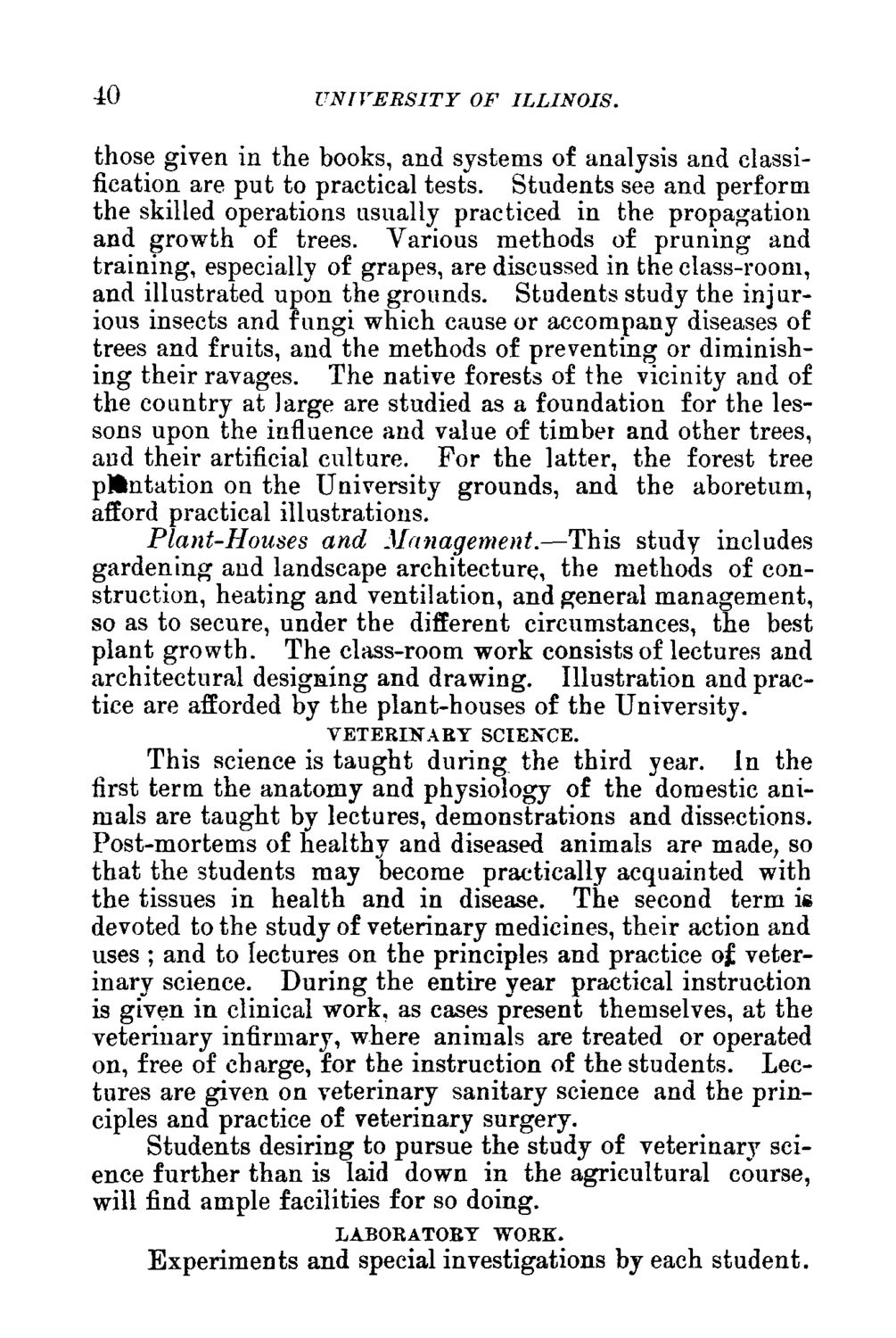| |
| |
Caption: Course Catalog - 1888-1889
This is a reduced-resolution page image for fast online browsing.

EXTRACTED TEXT FROM PAGE:
•40 UNIVERSITY OF ILLINOIS. those given in the books, and systems of analysis and classification are put to practical tests. Students see and perform the skilled operations usually practiced in the propagation and growth of trees. Various methods of pruning and training, especially of grapes, are discussed in the class-room, and illustrated upon the grounds. Students study the injurious insects and fungi which cause or accompany diseases of trees and fruits, and the methods of preventing or diminishing their ravages. The native forests of the vicinity and of the country at large are studied as a foundation for the lessons upon the influence and value of timber and other trees, and their artificial culture. For the latter, the forest tree plintation on the University grounds, and the aboretum, afford practical illustrations. Plant-Houses and Management.—This study includes gardening and landscape architecture, the methods of construction, heating and ventilation, and general management, so as to secure, under the different circumstances, the best plant growth. The class-room work consists of lectures and architectural designing and drawing. Illustration and practice are afforded by the plant-houses of the University. VETERINARY SCIEKCE. This science is taught during the third year. In the first term the anatomy and physiology of the domestic animals are taught by lectures, demonstrations and dissections. Post-mortems of healthy and diseased animals are made, so that the students may become practically acquainted with the tissues in health and in disease. The second term is devoted to the study of veterinary medicines, their action and uses ; and to lectures on the principles and practice of veterinary science. During the entire year practical instruction is given in clinical work, as cases present themselves, at the veterinary infirmary, where animals are treated or operated on, free of charge, for the instruction of the students. Lectures are given on veterinary sanitary science and the principles and practice of veterinary surgery. Students desiring to pursue the study of veterinary science further than is laid down in the agricultural course, will find ample facilities for so doing. LABORATORY WORK. Experiments and special investigations by each student.
| |